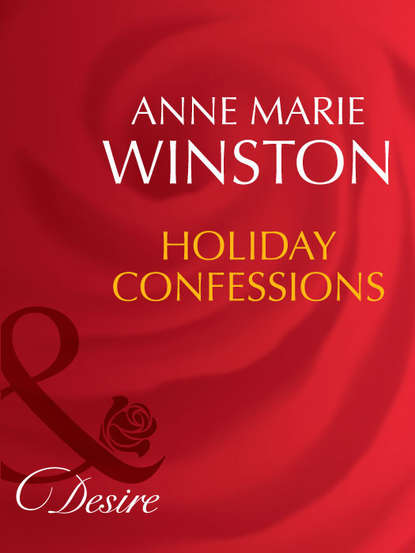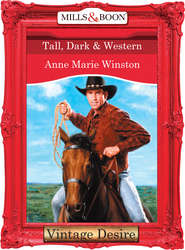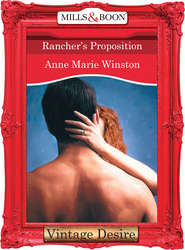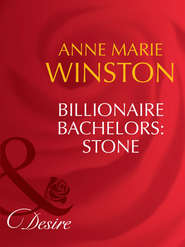По всем вопросам обращайтесь на: info@litportal.ru
(©) 2003-2024.
✖
Holiday Confessions
Автор
Год написания книги
2018
Настройки чтения
Размер шрифта
Высота строк
Поля
“I like baked chicken. Any potatoes?” he asked hopefully.
“Also baked. Double-stuffed.”
“The kind with sour cream and cheese all mashed up with the potato and then put back in the shell?”
She laughed. “The skin, not the shell.”
“Whatever.” He dismissed semantics. “Sounds great, especially to someone who eats most of his food out of take-out containers or microwave dishes.”
“I guess cooking is difficult,” she said tentatively.
He laughed, picking up his tea and taking a sip. “I know another blind guy who’s a fabulous cook. He’s a partial, which makes it a little easier for him—”
“A partial?”
“A person who still has some vision, although it’s usually pretty limited. Some partials have more vision in one eye than the other, some have vision in certain quadrants of their field of vision. I have no vision, so I’m a total.”
“I’m sorry I interrupted. You were talking about your friend who cooks.”
He smiled. “No problem. I was only going to say that even when I could see, it wasn’t at the top of my list of fun stuff to do.”
“I always enjoyed cooking, even when I was a little girl. I haven’t done much of it in a long time, though.”
It seemed like an odd statement, and he wished he could have seen her face. “Life too busy?”
“Something like that,” she murmured. “Have you always lived here?”
He recognized an about-face in conversational direction when he heard one. “No. I grew up in rural Pennsylvania, out near Pittsburgh. How about you?”
“A teeny little town called Barboursville in Virginia.”
“Is that anywhere near Williamsburg?”
“No. It’s above Richmond. Why?”
“One of the partners in my firm went to college at William & Mary. We were high school buddies so I was down there to visit a couple of times.”
“I forgot you told me you were with a law practice.”
He nodded. “Yes. Brinkmen & Brinkmen. Our offices are right on Baltimore Street downtown.”
“I’ve seen them. It’s a very charming little town.”
“And convenient, too.”
“Convenient?”
“Easy for me to get around independently.”
“Oh, right.” She paused. “I guess I didn’t think about that. You don’t drive, so you have to have at least basic services within walking distance.” She sounded as if she were talking more to herself than him.
“A lot of vision-impaired people live in large urban areas,” he said, “because things are so much more convenient, and there’s public transportation close at hand.”
“Didn’t think about that, either,” she admitted.
“Proximity to the things I need was one of the major attractions about Gettysburg. Main Street has a thriving business area thanks to the college and the tourists, so banking and doctors and dry cleaners are all within walking distance. And there’s a grocery store and a pharmacy, too, and some great restaurants.”
“Do you ever go over to the college?”
He nodded. “A lot of their music and theater performances, as well as the occasional guest lecture are open to the public.”
“Oh, good,” she said, sounding delighted. “I love music.”
“Do you play an instrument?”
“No. I played piano when I was a kid. It’s something I’ve always wanted to take up again.” Her voice sounded wistful.
“Maybe this is your chance,” he said.
“Maybe it is. So what else does one do in Gettysburg?”
“Well,” he said, “I hope you enjoy CivilWar history.”
She laughed. “Guilty. It was one of the things that drew me to the area. I want to learn more about the battlefield and the whole war.”
“I doubt you’ll have any trouble.”
She chuckled. “What else?”
“The usual things,” he said, “with an extra focus on history, perhaps. There’s a Community Concert Association, a library, a humane society, performing groups, a bunch of churches, business and civic organizations, stuff like that. If you want to get involved, I guarantee you’ll be welcomed with open arms.”
“I’ve never done any volunteer work. I wouldn’t know what to do.” Her tone was doubtful.
“You don’t need prior experience.” He felt like a cheerleader, and he wondered why she had so little self-confidence. “If you go to a meeting or two or join a church, it won’t be long before you’re being asked to help with things.”
“That would be nice.” He heard her rise. “Dinner should be about ready. Why don’t we go to the table now?”
Dinner was delicious and the conversation easy and inconsequential. They lingered for more than an hour, sharing coffee and cookies after the meal. Finally, he remembered that he had an extremely early morning the following day. He was just rising when her telephone rang.
“Excuse me.” She stepped away from him and he heard her pick up a handset. “I’d better take this,” she said, apparently having looked at the Caller Identification screen. “Hello?” Her voice sounded cautious and cool and although he knew it was rude to eavesdrop, he could hardly help hearing her side of the conversation.
“Hello, Daddy.” Her voice lilted with a pleasure he would have given a lot to have aimed at him. “How are you?…Yes. Yes. I know I haven’t. Oh.” The lilt flattened with what sounded a lot like disappointment. “…I see. When?…Congratulations. No, I don’t believe I’m going to have the time…. I’d rather you didn’t. No…maybe at Christmas. I’ll have to see if I can get away.” Her voice had taken on a bleak, distant tone. “Well, thank you for calling. I’m entertaining so I can’t chat.”
She concluded the conversation with speed and an affectionate word of farewell that sounded more rote than genuine.
As she set the handset back in the receiver, he hastily reached for another cookie so she wouldn’t think he’d been listening to her conversation. Even if he had.
She returned to her seat silently.











